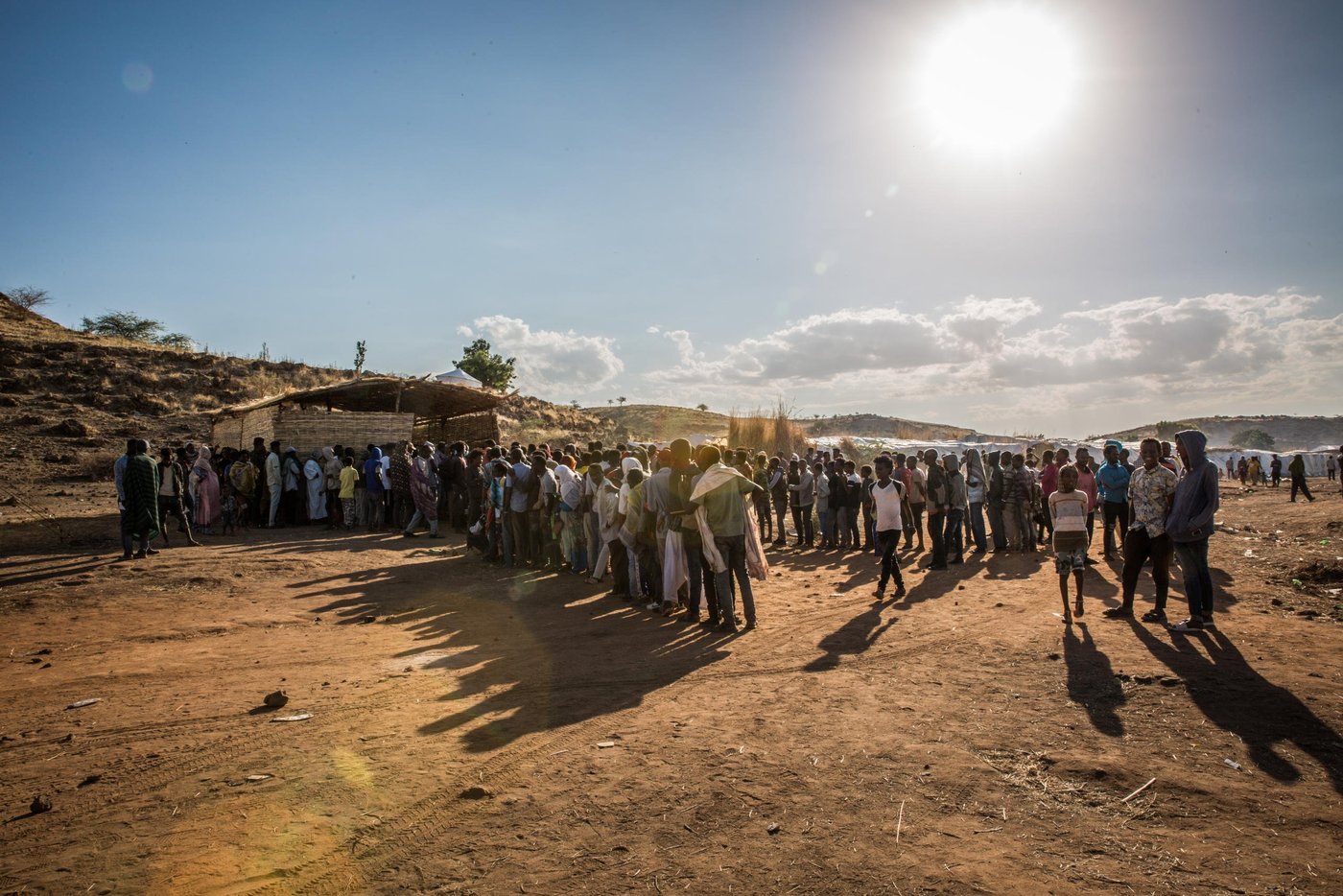Tigray is the northernmost region of Ethiopia. Violence broke out here in November 2020 and is still ongoing. The conflict has forced at least 55,000 people, many of them families, to cross the border into neighbouring Sudan.
Over 20,000 refugees are now living in Um Raquba camp, where the Norwegian Refugee Council (NRC) is on the ground, providing emergency assistance for the new arrivals.
We spoke to some of the people who have reached safety.
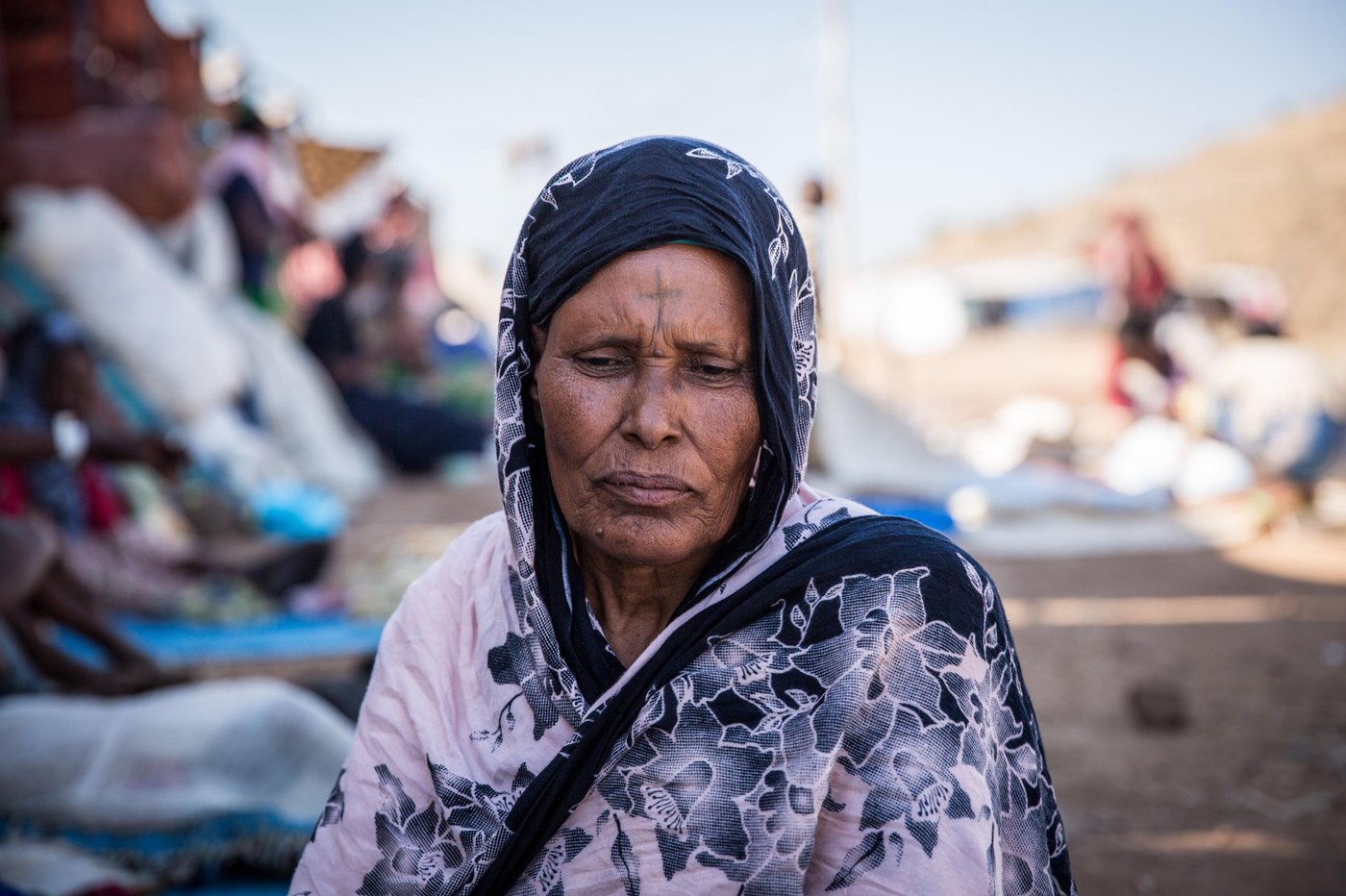
“We saw many dead bodies”
Melashu is 65 years old. She fled Tigray in November with her family of six and some of her neighbours. They found safety at Um Raquba camp.
“We saw many dead bodies along the road when we fled,” Melashu told us. “No-one was burying them.”
“My son-in-law is missing. Some of my closest neighbours are missing too. I have not been able to reach them. I am worried.”
The food is scarce in the camp so far, and Melashu is concerned. With no income and no land to farm, she faces an uncertain future.
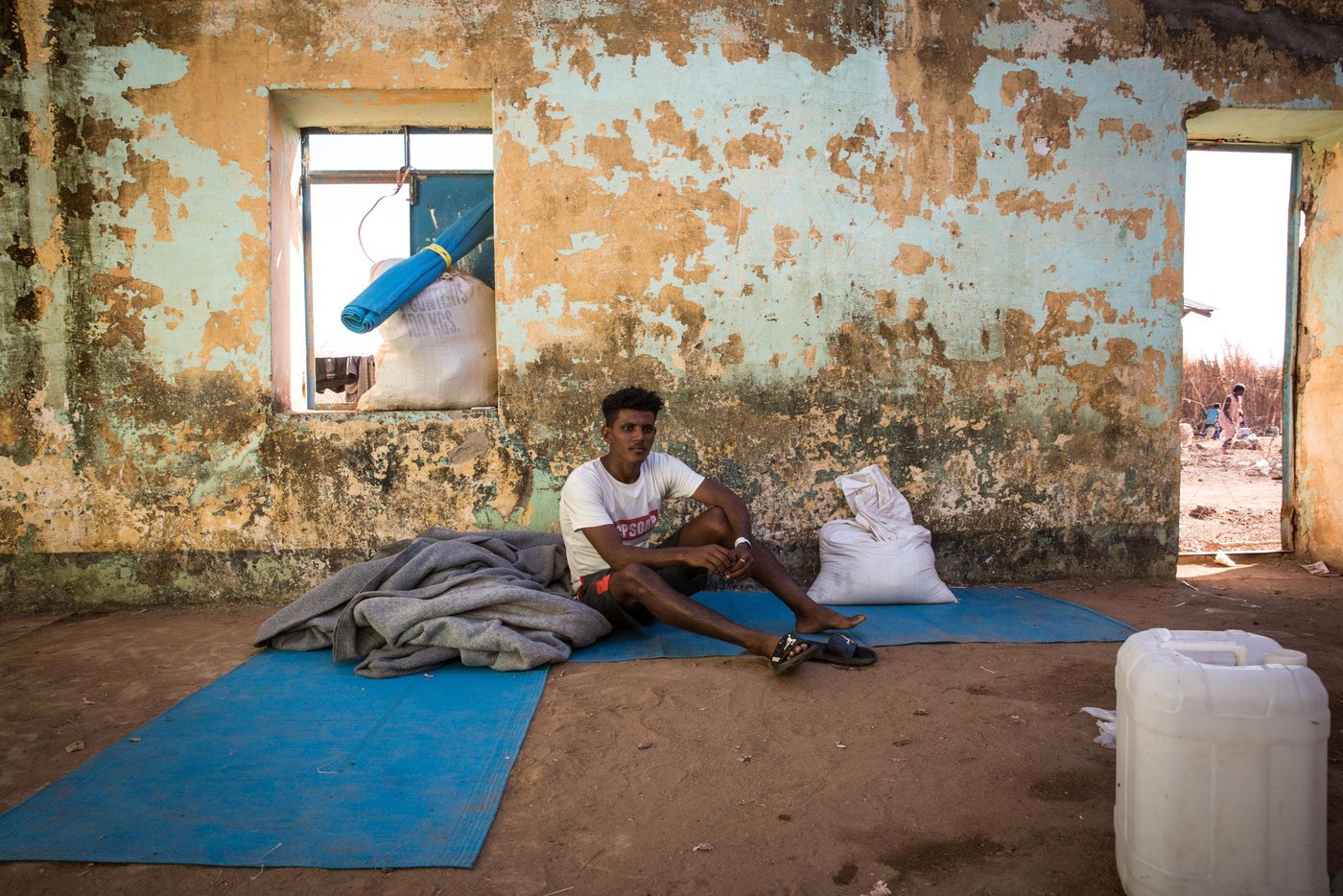
“I saw they were killing young men”
Ashenafi is just 19 years old. He fled Tigray alone and has not heard from his family since.
“I saw they were killing young men, so I fled,” he says. “Here I feel safe.”
He is now living in Um Raquba with 14 other people in a derelict building. The building used to be a school when the camp was last open in the 1980s, hosting Ethiopian refugees during the infamous famine. The roof is partly missing, and the living conditions are dire.
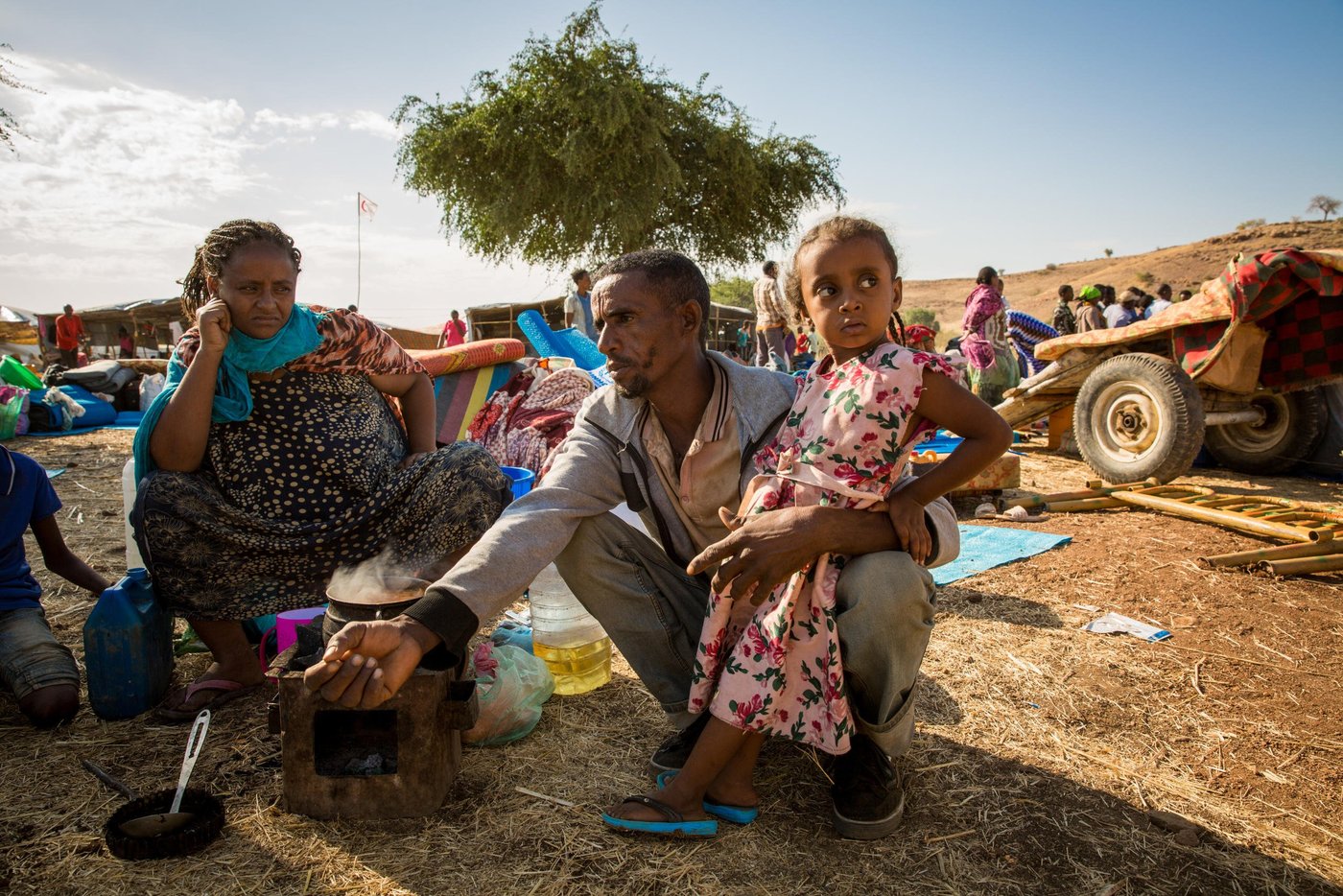
A hard journey
Leilti, 30, her husband Gebreyesus, 42, and her daughter Lela, 3, are tired after their first night sleeping under the open sky in Um Rakuba camp.
They arrived with the rest of their family the day before and are waiting together with a big group of new arrivals close to the entrance of the camp.
Leilti is five months pregnant and found the journey to Sudan very hard.
“I wish I didn’t have to give birth to my baby in this place,” she told us.
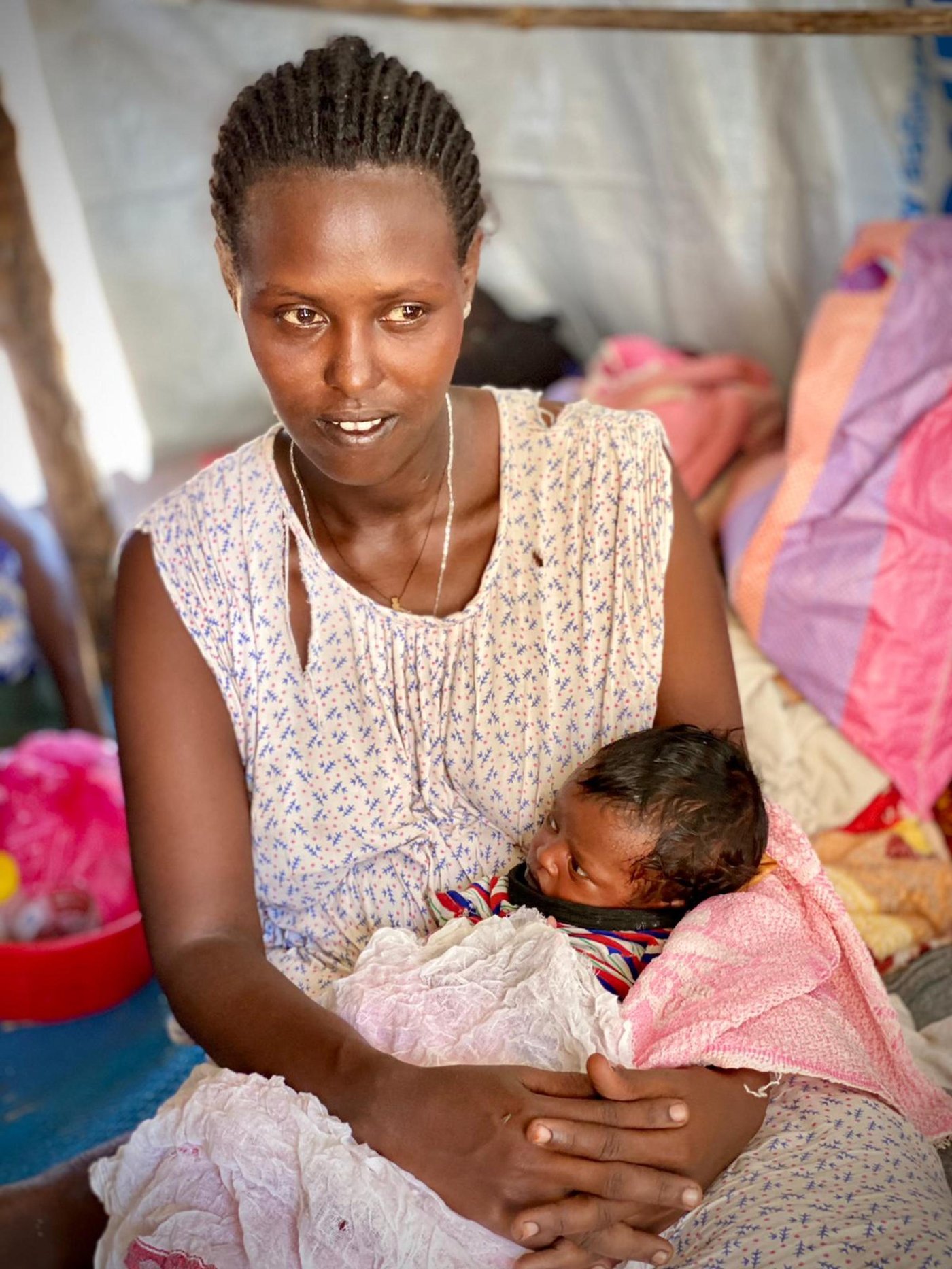
She gave birth on the way
This is Tirhaz, 25, and her newborn son. When the fighting broke out in Tigray, Tirhaz was heavily pregnant, but she had no choice but to flee in the hope she’d reach safety before her labour began.
She gave birth on her way to the border crossing. Other women who were making the same journey stopped to tend her.
After the birth, she gathered all her remaining strength and crossed the border with her newborn in her arms. They arrived in Um Rakuba camp, where her son now sleeps next to her in the communal refugee tent. She has barely enough milk to feed him.
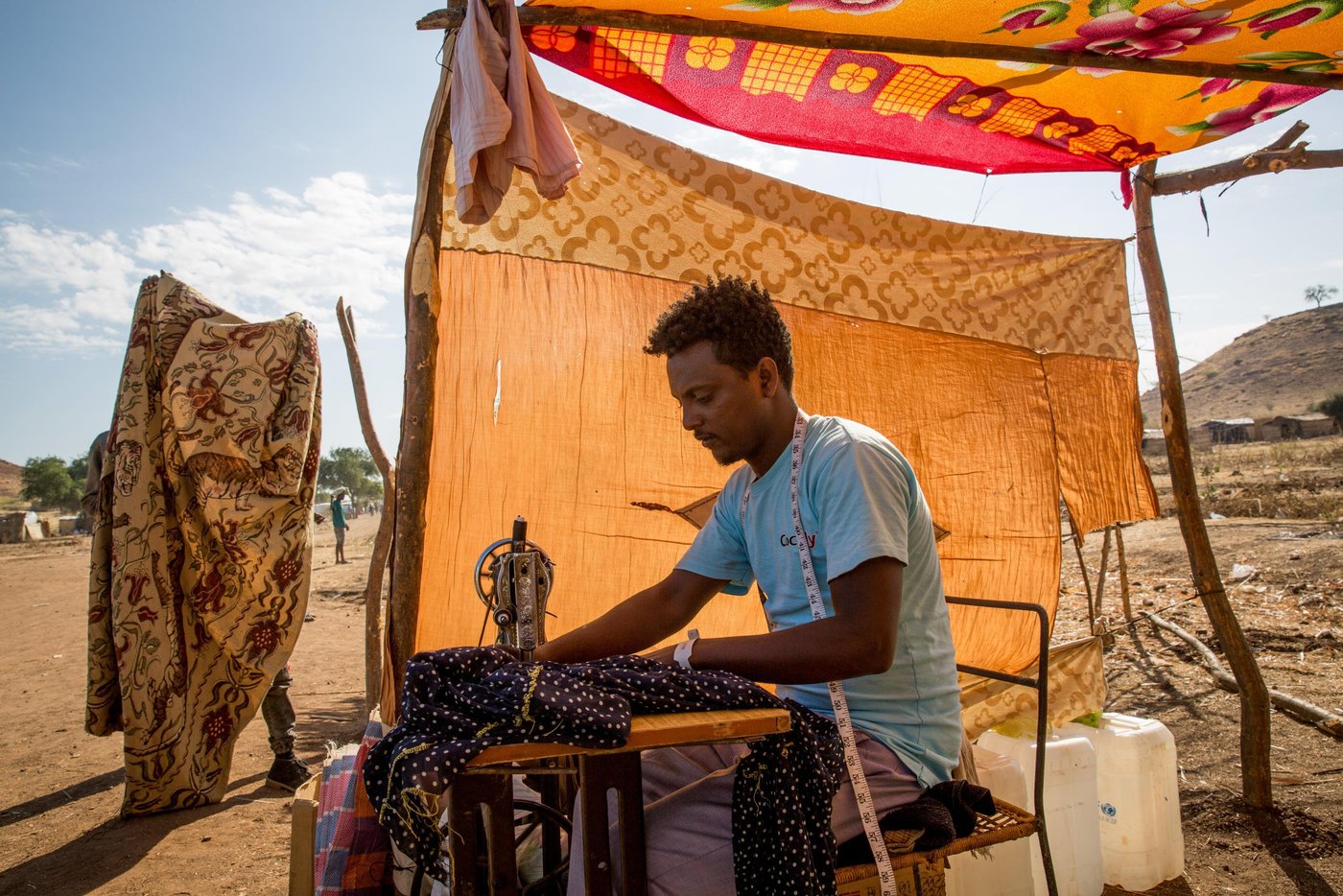
Making the best of his new situation
Even in such difficult conditions, some young entrepreneurs are thriving.
Ebrahim, 24, has harnessed his skills to set up a small tailoring shop in Um Rakuba camp. Business is good, as many refugees damaged their clothes during the long and difficult journey.
Ebrahim shares the income with the owner of the sewing machine. He and the other refugees here are determined to make the best of their situation.
***
NRC is providing cash and shelter assistance. We have also set up an emergency school serving over 1,100 children. We have also provided multipurpose cash assistance to over 7,650 families and collaborated with local traders to set up small businesses where refugees can buy additional essentials.


